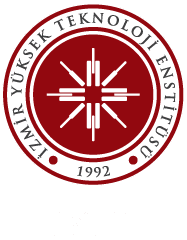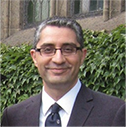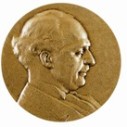Scientific Council Member Receives Prestigious Award
Theoretical condensed matter physicist Prof. Ramin Golestanian of the University of Oxford has received the 2014 Holweck Medal and Prize, “for his pioneering contributions to the development of the new research area of active soft matter, particularly microscopic swimmers and active colloids”. The prestigious annual prize is given jointly by the British and French Physical Societies since 1946. Nobel Laureates Alfred Kastler and Pierre-Gilles de Gennes are among the previous recipients.
The research of Prof. Golestanian focuses on understanding “living matter” or biological processes in terms of physical methods. He describes the prospects for this contemporary field as:
“Biological systems are a form of condensed matter, and they exhibit remarkable hierarchical spatial and temporal organization while maintaining a non-equilibrium state. We could use the tools we have developed to study correlated condensed matter systems to try and understand how these structures are formed and maintained. As an example, a process such as cell division involves copying the DNA in two with molecular-level accuracy in the genetic sequence (at the Angstrom level) despite the overwhelming noise and stochasticity, while doubling everything else in the cell (material synthesis) and pushing and pulling such that the overall structure of the two daughter cells (at the micron scale) has the right organization at the time of division. This might look like magic, or “Kimia”, but it should be possible to use our knowledge of non-equilibrium statistical physics of active matter to understand how it can possibly happen.”
Prof. Golestanian is a member of Scientific Council of ICTP-ECAR, and he had participated in the Inauguration Conference of the Centre in May, giving a talk entitled “Making Living Matter From The Bottom Up” (video recording of his presentation is available here). We appreciate his dedicated contributions and support to ICTP-ECAR:
“Science knows no boundaries, and this is one of the many beautiful things about it. There are many countries in this region that have vibrant scientific communities and are very active in research. Unfortunately, relative isolation makes it difficult for the scientists in the region to have access to those from other communities, to exchange ideas freely, and to have access to the latest developments in other parts of the world. We hear very often that scientists are not granted visas to attend international meetings, and this is terribly unhelpful to those who are trying to overcome all kinds of difficulties and be active and competitive at the international level. By not requiring a visa, Turkey is in a unique position to help scientists in this region; students, postdocs and academics can literally buy a ticket and go to Izmir to attend an international scientific event. This is very important. I believe in what ICTP-ECAR has set out to do and I hope it will be able to realize this dream for scientists in the region.”
04 September 2014 – İzmir


